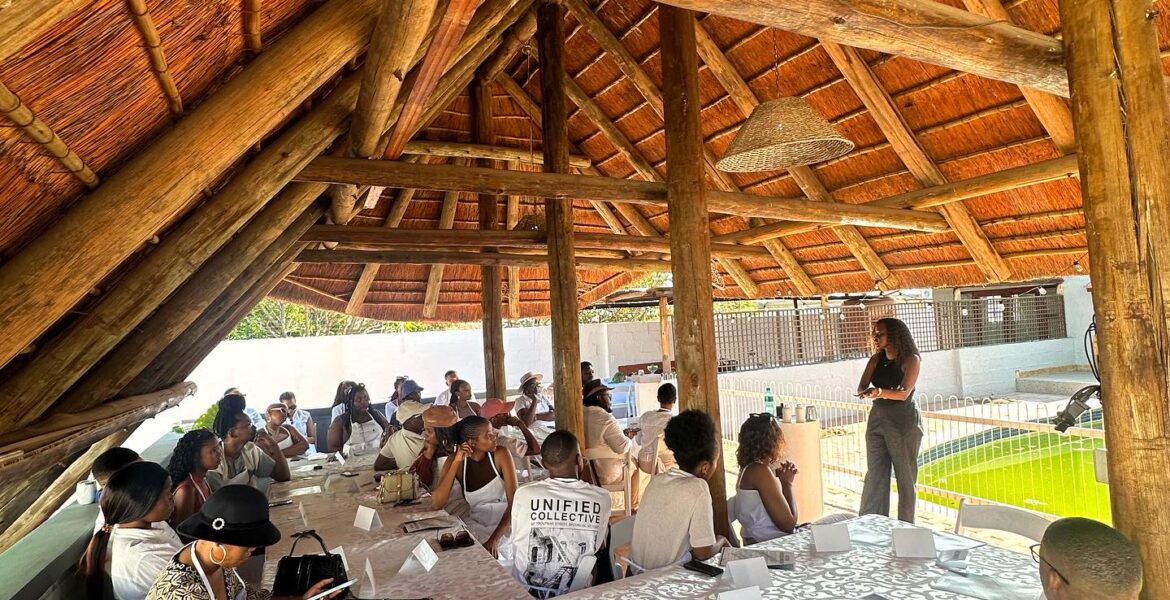- HotCon, a virtual conference by The Hotwire Family of Brands, sparks conversations about interventions that could elevate Botswana’s creative scene
GOSEGO MOTSUMI
In a bid to unpack and accelerate a viable creative industry, virtual conference HotCon by The Hotwire Family of Brands recently hosted a panel of creative trailblazers to share their views of how creatives can use their talent to build thriving businesses and create sustainable income avenues.
The healthy mix of panelists included Thembi Legwaila (Head of Marketing at MultiChoice Botswana), Tefo Paya (Director of Maitisong), Taazima Kala-Essack (General Manager & Lead Consultant at Hotwire), Shike Olsen (Managing Editor at News Company Botswana and The Botswana Gazette), and host Tshepo Ntshole-Hall (Storyteller, Communicator and Media Entrepreneur).
Not where it should be
Tackling the initial conversation regarding whether Botswana has a creative industry to speak of, Paya stated that the industry exists because he has seen people paying for creative products that range from performances to artworks.
Even so, he added, it is not where it should be because it is semi-formal and to establish it more firmly, “It is the responsibility of the creative to do research about industry standards and market fees.”
“There is a need for mentorship, starting with what you have and finding safe spaces that support your work. As a creative, take your own accountability because if you are empowered, you are in a better position to even educate the client.”
An economy of scarcity
Answering the fundamental question of whether Botswana has a creative industry, Olsen said what obtains is a loose association of people with creative skills fighting for a piece of what is an economy of scarcity. He noted that there is recognition of the existence of people with creative works.
However, Olsen added, from an industry perspective, there are a few policies and practices that recognise creatives and safeguard their work to enable them to become flourishing industries.
“For example, the construction industry enjoys protection, prominence and recognition, whereas with the creative industry, we recognise people with the creative skills but are not afforded opportunity to thrive,” he said. “So it is very far from being called an industry.”
Admirable but …
Over the years, the government has spent millions of pula on creative skills training. Olsen underlined lack of basic skills in the respective creative fields that students are graduates of and (in)ability to effectively communicate in English as issues.
“[We] are putting kids out there without the necessary skills that are on par with places we want to compete with,” he asserted.
Addressing the issue of what creatives can do to make themselves more marketable, Legwaila emphasised the importance of “packaging yourself well” by investing relentlessly in the craft and having botho (humility).
Botswana content
“We also do our part of advocating for Botswana content on the DStv platform because we do have paying clients who would like to see themselves on the platform,” she said.
The discussion acknowledged that how society, corporates and investors support and engage with creatives is a key dynamic towards real, meaningful change in monetising the creative industry. “There has to be value on both sides,” said Kala-Essack of Hotwire.
She noted that conversations around valuing the creative industry are gradually bearing fruit, pointing to establishment of the National Arts Council of Botswana and initiatives like #PushaBW as reassuring in that regard.
Knowledge-based society
“HotCon” is part of a monthly series that brings together bright and inquisitive minds to discuss key issues affecting various industries locally and globally.
Each webinar is free to access by members of the public and seeks to spark debate and discourse on a variety of topical issues, all of which are within the scope of human interest and can help cultivate progress towards becoming a more knowledge-based society.

